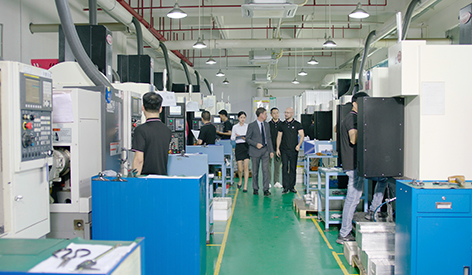ㆍPrivacy: We respect your privacy. Here you can find an example of a non-disclosure agreement. By submitting this form, you agree to our terms & conditions and privacy policy.
Views: 4 Author: Site Editor Publish Time: 2024-04-19 Origin: Site









Introduction
Prototype machine shops play a pivotal role in modern manufacturing, offering rapid prototyping services crucial for product development cycles. This technical article explores the intricacies of prototype machine shops, focusing on achieving competitive pricing while maintaining delivery guarantees.
1. Understanding the Role of Prototype Machine Shops
· Overview of the prototyping process and the role of machine shops in turning concepts into tangible prototypes.
· Importance of rapid turnaround times and precision machining capabilities in meeting client expectations.
· Key factors driving the demand for prototype machine shop services in various industries.
2. Balancing Cost Competitiveness
· Strategies for optimizing machining processes to reduce production costs without compromising quality.
· Utilization of cost-effective materials and tooling solutions for prototype manufacturing.
· Negotiation techniques and supplier partnerships to secure competitive pricing for raw materials and services.
3. Ensuring Delivery Guarantees
· Importance of efficient project management and scheduling to meet tight deadlines.
· Utilization of advanced scheduling software and workflow optimization techniques in prototype machine shops.
· Collaboration with logistics partners for reliable and timely delivery of finished prototypes.
4. Quality Assurance and Compliance
· Implementation of rigorous quality control measures to ensure prototypes meet design specifications.
· Adherence to industry standards and regulations for prototype manufacturing across different sectors.
· Continuous improvement initiatives and feedback loops to address quality issues and enhance processes.
5. Leveraging Technology and Innovation
· Integration of advanced machining technologies such as CNC machining, 3D printing, and additive manufacturing in prototype production.
· Utilization of CAD/CAM software for efficient design-to-production workflows and rapid iterations.
· Exploration of emerging technologies like AI-driven manufacturing and digital twin simulations in prototype development.
6. Case Studies and Best Practices
· Case studies showcasing successful projects delivered by prototype machine shops, highlighting cost savings and delivery efficiencies.
· Best practices in project scoping, cost estimation, and risk management for prototype manufacturing.
· Client testimonials and feedback on the importance of competitive pricing and delivery guarantees.
Conclusion
Prototype machine shops serve as the backbone of innovation, enabling companies to iterate quickly and bring new products to market. By striking a balance between cost competitiveness and delivery guarantees, these shops can provide valuable services to industries ranging from automotive and aerospace to healthcare and consumer electronics. Embracing technology, optimizing processes, and fostering strong partnerships are key to success in the dynamic world of prototype manufacturing.

